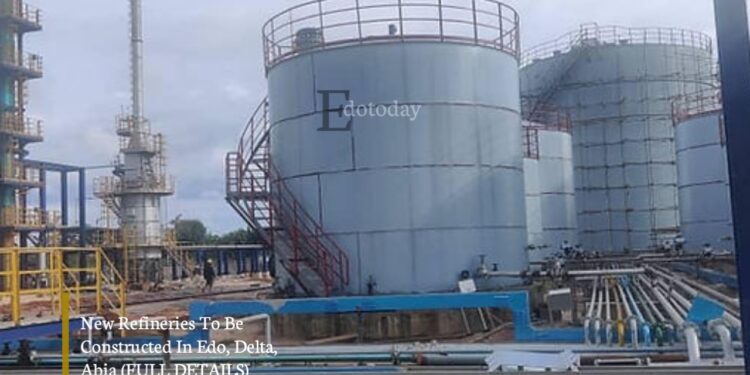Three companies have been granted refining licenses by the Nigeria Midstream and Downstream Petroleum Resources Authority to construct new refineries in Abia, Delta, and Edo States.
The three proposed refineries are anticipated to have a combined refining capacity of 140,000 barrels per day.
The NMDPRA stated in an X post on its official page that the following companies have been granted licenses: Eghudu Refinery Ltd. in Edo State was granted a refinery license for 100,000 barrels per day, MB Refinery and Petrochemicals Company Ltd. in Delta State was granted a license to establish a refinery with a capacity of 30,000 barrels per day, and HIS Refining and Petrochemical Company Ltd. in Abia state was granted a license to establish a 10,000 barrels per day.
The statement read: “The Authority Chief Executive, Engr. Farouk Ahmed presented a License to construct a 100,000 bpd refinery to Eghudu Refinery Ltd in Edo state, a License to establish a 30,000 bpd refinery to MB Refinery and Petrochemicals Company Ltd in Delta state, and a License to establish a 10,000 bpd refinery to HIS Refining and Petrochemical Company Ltd. in Abia state.”
“These Licenses, which would add 140,000 barrels per day to Nigeria’s domestic refining capacity, were presented to the MDs of the companies.”
The Dangote Petroleum Refinery and Petrochemicals FZE, the Warri Refinery and Petrochemical Company, the Kaduna Refinery and Petrochemical Company, and the Port Harcourt Refinery Company Limited are among Nigeria’s nine operational refineries, according to data from the Nigerian Upstream Petroleum Regulatory Commission (NUPRC).
Together, these refineries can refine 974,500 barrels per day; the Dangote refinery can refine 650,000 barrels per day, the most. Most refineries, nonetheless, are not operating at maximum capacity. The NUPRC estimates that in the first half of 2025, the nine refineries would need a total of 770,500 barrels per day and 123,480,500 barrels of crude oil.
This number is growing with new refineries under construction and licensed by the NMDPRA.
The growing number of refineries has placed Nigeria as a major refining hub in Africa.
However, local refineries mentioned that they struggle to secure crude locally despite assurances given by the Federal Government.












